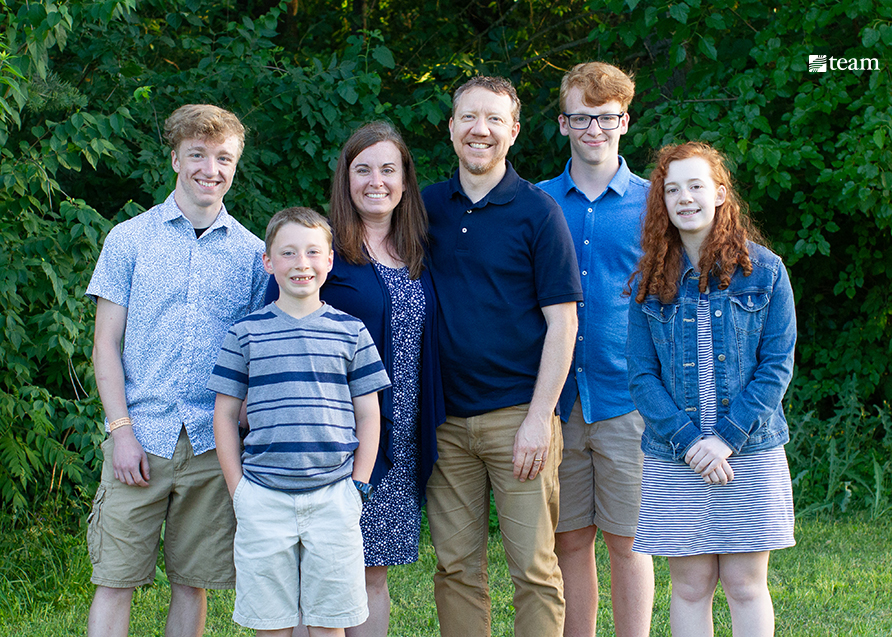
Becoming a Missionary
How To Choose A Missions Agency
May 13, 2014
by Interactive Supply

Technology, accessible travel and global banking have made it easier than ever to pack up and move overseas. So it may seem like an easy choice to go abroad as an independent missionary without being attached to a missions agency.
But while the freedom and flexibility of going it alone can be a benefit for some missionaries, the majority of missionaries find that the positives of journeying with an agency far outweigh any drawbacks.
Whether you’re deciding between missions agencies, considering your church as your “agency,” or contemplating going out on your own, ask yourself these questions as you weigh your options.
1. Who will affirm my calling?
Every missionary’s calling should be discerned in the local church, which TEAM believes is primarily responsible for sending a missionary. But getting an independent second opinion that affirms your calling and your readiness is arguably essential for long-term success on the field.
Likewise, when considering a sending agency, ask if the agency values the local sending church’s assessment of your calling and readiness. It should. Missions agencies are not meant to bypass the church, but to work hand-in-hand with it.
2. Who will lend context and credibility to my ministry?
Few things help missionaries when raising their support like the endorsement of a credible third party. Make sure your agency or sender can offer you that, so your potential supporters do not have to merely take you at your word.
Financial accountability is also a key component of credibility. It should go without saying, but make sure your sender could pass rigorous tests of financial accountability and controls. The best organizations regularly test themselves on this through independent financial audits and in-house reviews.
3. Who will prepare me professionally, culturally, and spiritually?
By itself, a calling to missions does not make someone ready to head to the field. Months — sometimes years — of training in language, culture, Bible, and other skills are usually needed before a missionary is ready to serve effectively in a foreign context. Depending on your situation, lining up all this training could be a lot of work. Be sure your sending agency is up to the task, and beware of cutting corners in your missionary preparation. It might be tempting at first, but in the long run, good preparation is a priceless investment.
4. Who will connect my ministry to something larger?
In a globalized world, global mission is increasingly interconnected. Partnerships with churches and other ministries — both internationally and domestically — are becoming essential to ministry success. We all need help to make these connections. The best sending agencies will have deep resources to help with this. Make sure yours does.
5. Who will help my ministry live beyond me?
Missionaries today tend not to stay in one place as long as they did a generation ago. You may think you’re going to serve in Austria forever (and we hope you do!), but it’s increasingly common for workers to stay in one place for a few years and then move to another field or on to something else.
If there’s even a slight chance that may describe you, consider whether your sender has a strategic presence in your field or a plan to place new workers there, to ensure your ministry will continue even if you’re gone. You probably want to leave the greatest Kingdom legacy you can, and many missions agencies are structured to help that happen.
6. Who will provide logistical support?
Churches have traditionally worked with missions agencies as a way to outsource the administrative tasks they may not feel equipped to tackle. While the best agencies offer so much more, that is still one of the biggest benefits of an agency. Visa logistics, work permits, managing donations legally, relocating overseas, crisis situations and member care — missions agencies are experts in dealing with these things. There are certainly ways to wade through all the red tape yourself, but ask yourself if you really have the time and energy for it.
7. Who is preparing me for ministry 10 years from now?
Church ministry in North America today looks very different than it did a decade ago, and the same goes for global missions. The way we approach ministry overseas is rapidly changing as the global south becomes a growing mission force and multi-national teams emerge as the new norm in many countries. Ask yourself if your sender is prepared not just for global ministry today, but 10 or 20 years from now. Better yet, ask your sending agency.
8. Who will help me when things get tough?
Overseas service is full of exciting and rewarding seasons. But it is guaranteed to have difficult stretches involving high stress, disputes with coworkers or depression. Weathering those storms is so much easier with the help of an experienced and equipped missionary care team.
Member care takes many different forms, but one thing is sure: it requires more than an occasional email with a friend back in North America. It’s easy when you are fresh and optimistic to think you’ll never need member care. But you’ll want to make sure your sending organization has something to offer when you need it most. The best agencies have built-in structures to address problems before they happen.
9. Who is on my team, and will we all get along?
Even the most gifted and spirit-filled missionary cannot do missions alone. We all need people on our team, whether they live next to us or sit in an office a thousand miles away. Make sure the people on your team can work well with your values and ministry vision. How does the team make decisions, and what input will you have into those decisions?
Consider your sender’s theological views and how they align with yours. Also consider your own personality, how you prefer to work, and your family and lifestyle priorities. How do you want to school your children? What standard of living do you hope to maintain on the field? These are important issues to be honest about with yourself and your sender.
Related articles

